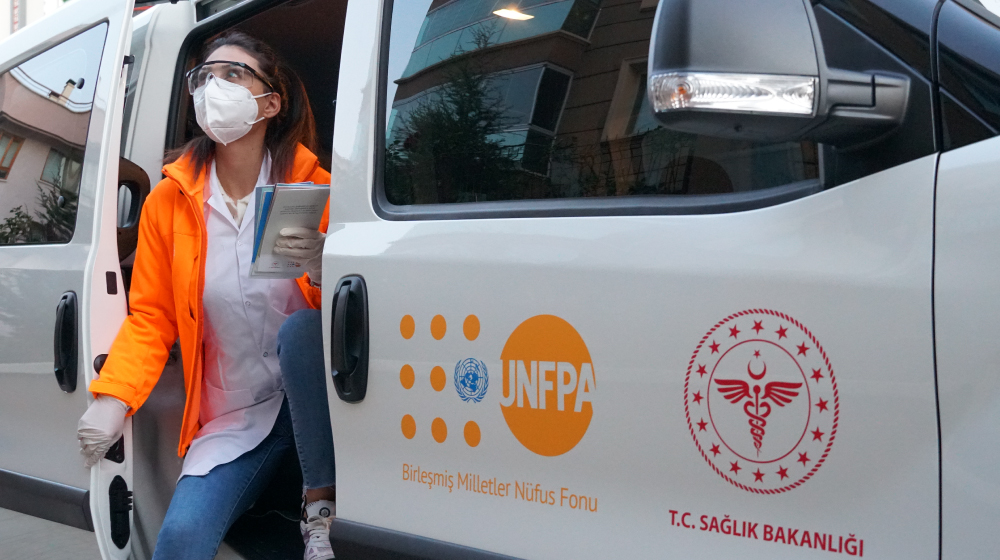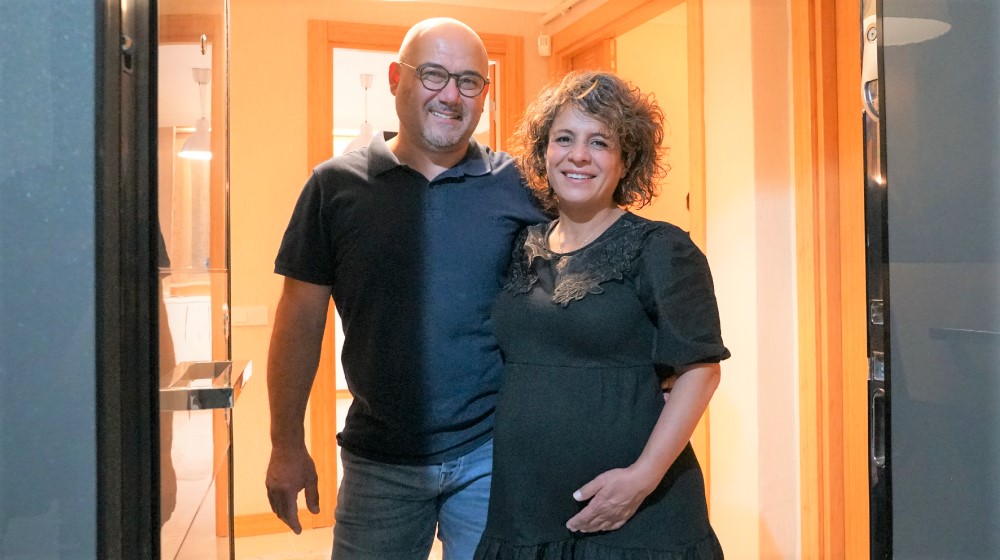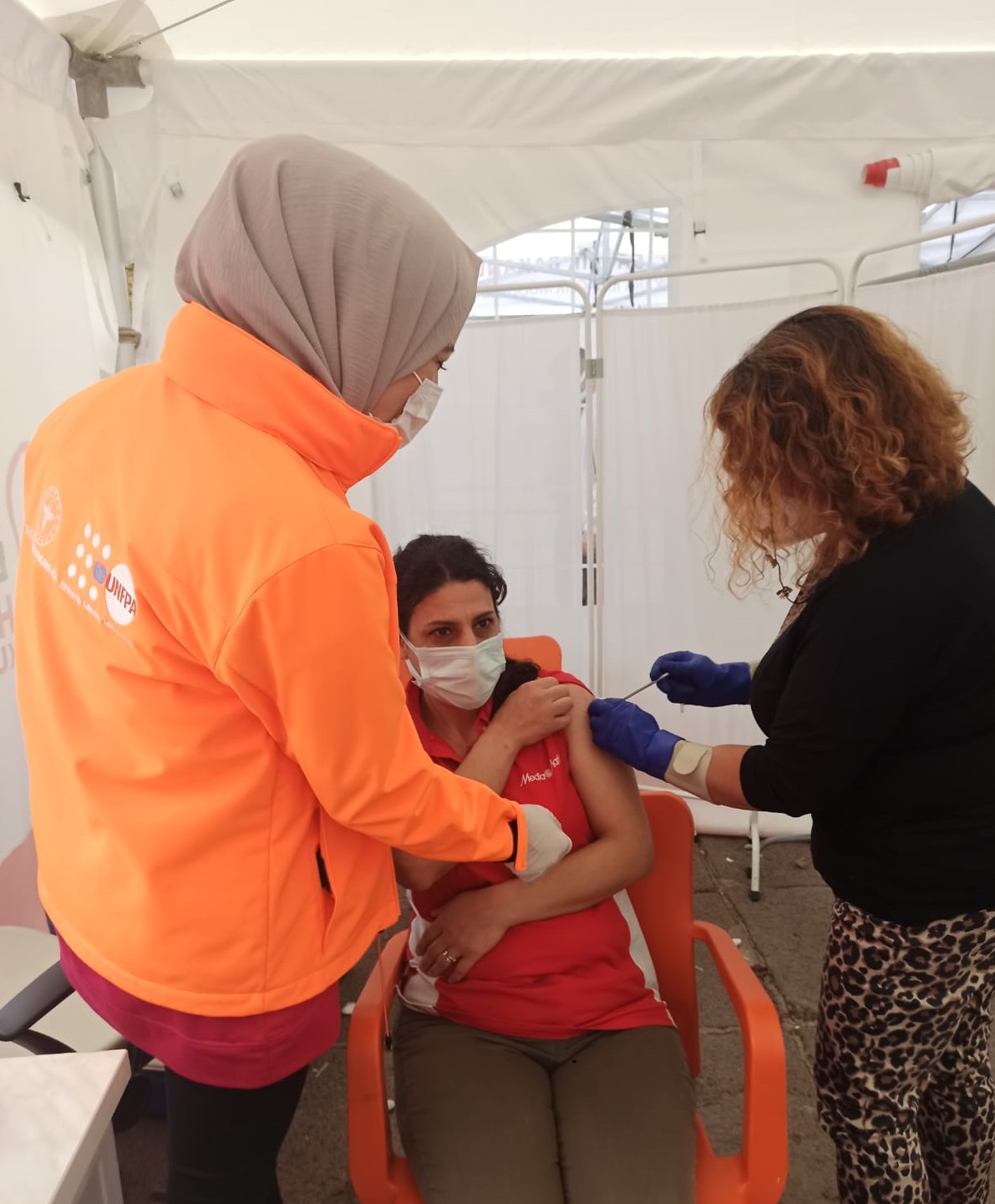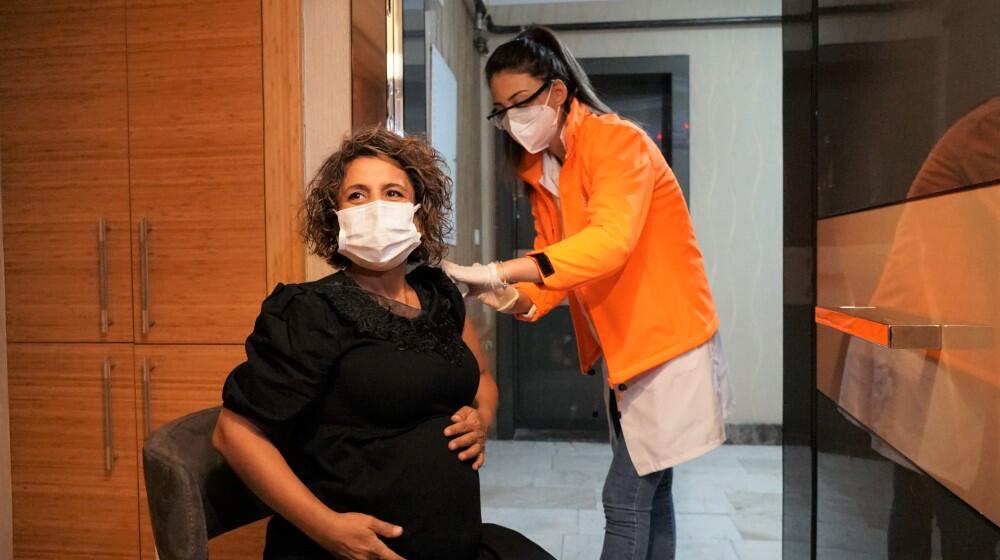For almost two years now, the world has been struggling with one of the most serious health crises of the modern world, the COVID-19 pandemic. While the pandemic has resulted in major changes in various sectors of life from the job market to health services, there are still things that do not stop during the pandemic such as pregnancies. From the beginning, there have been lots of uncertainties regarding the risks of COVID-19 for pregnant women and their babies. Although the development of vaccination has spread hope across the world to combat stronger against the pandemic, it has further complicated the situation for pregnant women, adding new and perhaps more complex questions to the existing ones. While some answers to these questions remain unanswered, there is a significant increase in the morbidity and mortality rates of COVID-19 among pregnant women.
TURKEY - Sevda Şengün, 46, is only one of the millions of women who got pregnant and have faced all these questions during the pandemic. She is 27-week pregnant. When they first learned that they were expecting twin babies, she and her husband felt not only happy but also anxious due to the risks and uncertainties waiting for them and their babies in the process.
Their first reaction has been to make the measures they took to protect themselves from the infection even stronger: “We stopped seeing our friends. We didn't even go shopping. My life was between work and home. We didn’t see our families as well. We have been very careful about hygiene.”
In the midst of all these, one issue has long remained a source of confusion for them: the decision to get vaccinated. “The Internet was full of misinformation so I refrained myself from checking them. We were always in contact with my doctor. He recommended that we wait for a while as there were no examples of pregnant women who were vaccinated and given birth.”
“My friends scared me too. They didn’t want me to get vaccinated. I even stopped seeing some of them” says Sevda. The negative news about pregnant women has also affected her decision-making process. With the increase in cases Sevda's search for protection against the infection has also increased: “We were protecting ourselves from all kinds of risks but whenever I heard about deaths, I got very worried about my babies. I wanted more comprehensive protection and I knew that it was possible only with vaccination.”

After a period of confusion, Sevda decided to get vaccinated: “We consulted doctors and experts we know. After the approvals of the certain vaccinations, I finally decided to get vaccinated on my 23th week.”
“It was a huge relief” Sevda explains her feelings: “I was afraid at first but when I saw nothing happened, I got free from my fears. I recommend it to everyone. I preferred getting vaccinated to live with a fear of my babies getting infected. I feel safe, peaceful and quiet now. ”

There are millions of women who experience the same hardships as Sevda all over the world. A recent study shows that pregnant women infected with the virus face 10 times higher risk of death. The study also shows that the virus increases the likelihood of preterm birth and infant death. Despite these, the number of pregnant women who get vaccinated is still very low due to the very same reasons as Sevda and his husband postponed their decision.
Although women's health specialists urge pregnant women to consult their doctors and get vaccinated at the appropriate time if it is appropriate for them, and health and vaccination services are provided widely, reaching the most vulnerable groups remains among the biggest challenges in the fight against the pandemic.
With the financial support of the United Nations Multi-Partner Trust Fund (MPTF) and in collaboration with the Ministry of Health of Turkey, UNFPA is in the field to reach the women in the remotest areas to raise awareness and increase access to vaccination. With the mobile service units, UNFPA especially reaches the most vulnerable groups to ensure not only that every mother and baby have healthy and safe lives with minimum risk of getting infected but also that everyone has equal rights and access to health services.



